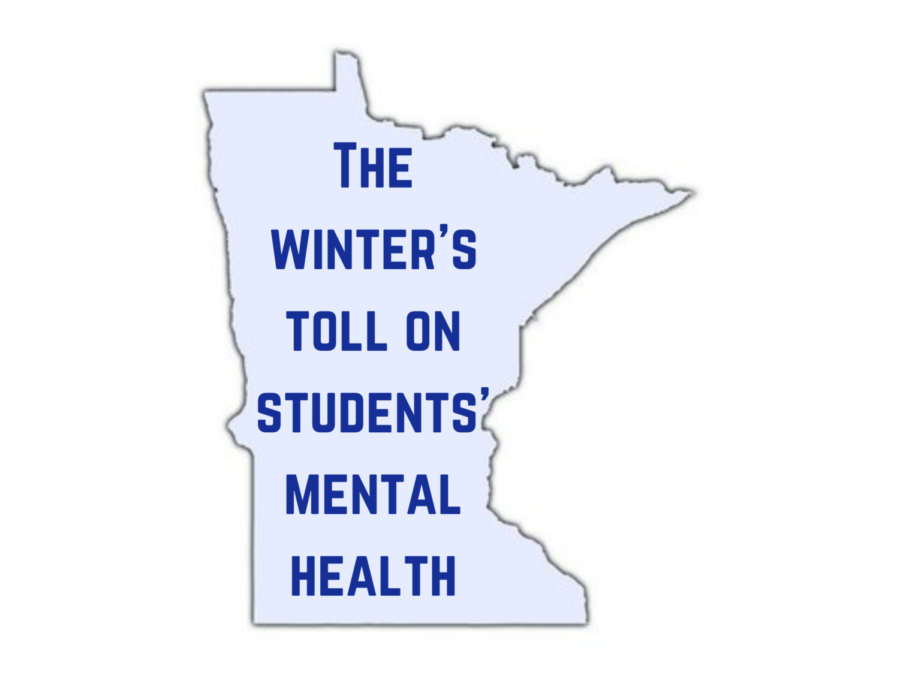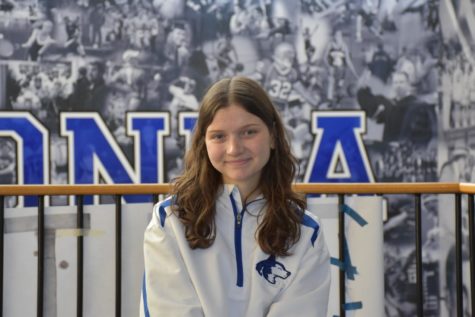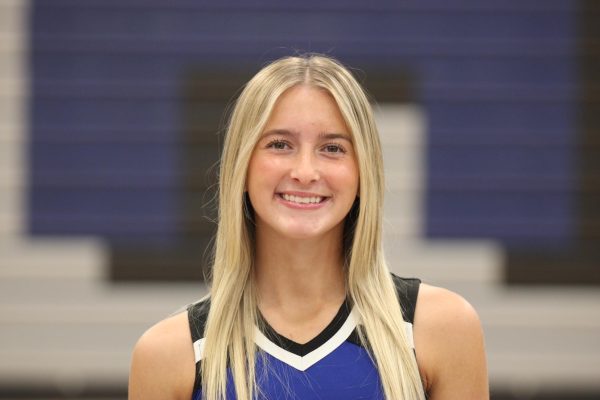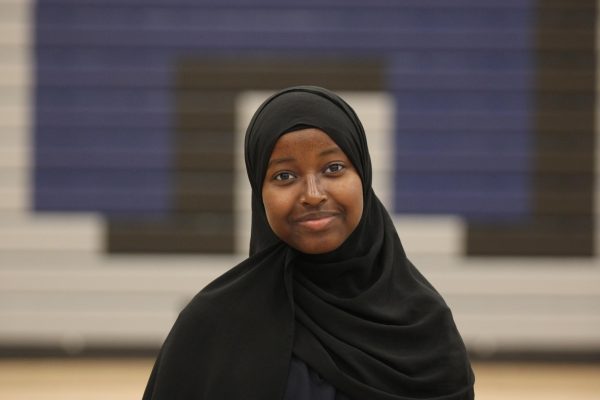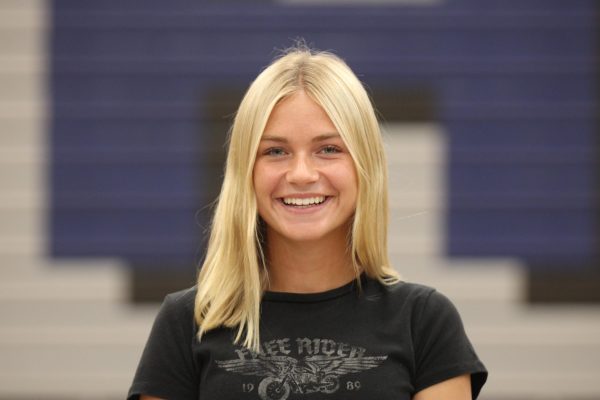The winter’s toll on students’ mental health
Minnesota winters can be a difficult time for people struggling with mental health.
January 20, 2022
As the season of holiday cheer ends and the gloomy winter drones on, this transition can come as a rude awakening to some people, as the atmosphere can quickly take a toll on their mental health. This is especially present in places like Minnesota, where the changes in the seasons are abrupt and intense. According to a recent study conducted by BlueCross BlueShield (BCBS), Minnesota is ranked the 4th most-depressed state in the nation. And while the environment is not the only reason for these high rates of depression in Minnesota, it can surely take some of the blame.
The “winter blues” is a general term that refers to the feeling of sadness and low energy that can be heightened during this season and affects many students. In more rare and severe cases, this form of depression is diagnosed as seasonal affective disorder, or SAD. SAD is generally triggered by the shorter days and the reduced amount of sunlight in the winter months, and this change throws off the body’s internal clock, also known as circadian rhythm. Symptoms of SAD typically last for four or five months each year, and the counselors have noticed that January, February and March seem to be the most difficult months, with more students seeking support.
This is felt among OHS students and staff as low spirits fill the classrooms on these dark winter days. Sophomore Cooper Ackman said, “During the winter everyone seems a bit more tired than usual.” In addition to the already present difficulties of the winter, the transition between semesters creates added stress and responsibilities, causing sleep schedules to suffer as students rush to finish finals and prepare for the changes that come with the new semester.
For people struggling in the winter It can also be helpful to try to spend time outside in the sun, or even just by a window to create exposure to vitamin D for at least a small portion of each day. If possible, taking a walk or getting the body moving can also be imperative to staying in the right head space, but for some people, even leaving the bed can be a challenge and it is important to respect everyone no matter what is attainable for them at that moment.
The most important thing to do is make sure to talk to a trusted adult and seek help if needed. OHS Counselor Ms. Tami Langlois said, “Friends are good support systems, but sometimes that’s a lot to put on a friendship.” School counselors and other professionals are always there to talk. Simply speaking to someone about struggles can sometimes be the most helpful thing to do. Remember that this season does not last forever and things will look up eventually, but never be ashamed to ask for help when needed.

